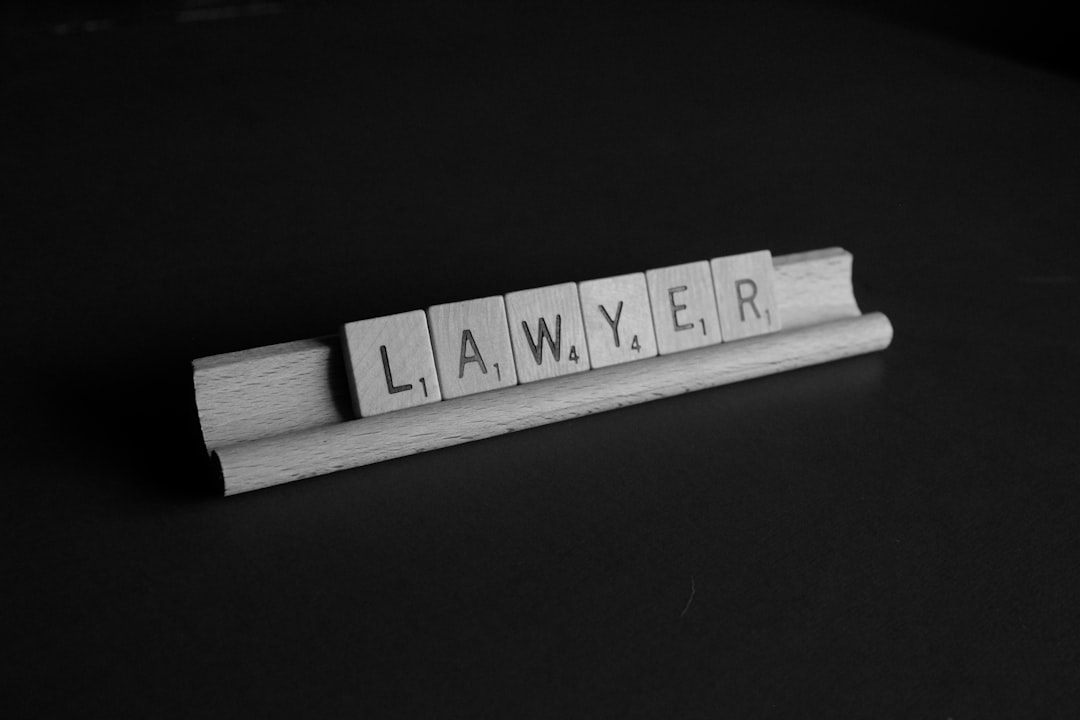Consumers in the District of Columbia are protected from unwanted text messages and robocalls by the "Do Not Text Laws." To enforce these laws, individuals can consult specialized Do Not Text Laws lawyers or robocall attorneys who offer expertise in consumer protection. These professionals guide clients on blocking numbers, filing complaints, and claiming damages against violators. Key actions include enrolling in the National Do Not Call Registry, utilizing telecommunications company blocking tools, and reporting robocalls to relevant agencies. Legal action can be taken through the Federal Trade Commission (FTC) and local authorities, with compensation available for harassment. Choosing a qualified Do Not Text Laws Lawyer DC is essential for navigating legal complexities and securing justice against relentless robocall campaigns.
In the modern era of relentless communication, consumers in Washington D.C. face a growing menace: harassment calls from law firms, often disguised as ‘Do Not Text’ messages. These unwanted intrusions have led to widespread frustration and the need for robust defense mechanisms. This article guides residents through the intricate web of consumer rights, offering insights on identifying and reporting robocall attorneys, pursuing legal actions against offending firms, and choosing the right lawyer in the District. Learn how to protect yourself under DC’s Do Not Text Laws and reclaim your peace.
- Understanding Consumer Rights Against Harassment Calls in DC
- The Role of Do Not Text Laws in Protecting Residents
- How to Identify and Report Robocall Attorneys in Washington D.C.
- Legal Actions Against Robocall Law Firms in the District
- Choosing the Right Lawyer for Robocall Issues in DC
- Common Misconceptions About Consumer Protection Laws in DC
- Success Stories: Case Studies of Harassment Call Defense
- What to Do If You're a Victim of Unwanted Text Messages from Law Firms
Understanding Consumer Rights Against Harassment Calls in DC
In the District of Columbia, consumers have rights when it comes to harassment calls, including unwanted text messages from automated or robocall systems. Understanding and protecting these rights is crucial for residents facing a deluge of unsolicited texts. The Do Not Text Laws in DC are designed to empower individuals to take action against persistent and intrusive communication, ensuring their peace of mind.
If you’re experiencing frequent robocalls or receiving text messages from unknown sources, it’s advisable to consult with a qualified Do Not Text Laws lawyer DC or an attorney specializing in robocall laws DC. These legal professionals can guide you on how to navigate your options, from blocking numbers to filing complaints. Reputable robocall law firms DC offer expertise in consumer protection, assisting individuals in asserting their rights and seeking resolution for any associated distress.
The Role of Do Not Text Laws in Protecting Residents
In the District of Columbia, Do Not Text Laws play a pivotal role in safeguarding residents from unwanted and harassing text messages. These laws, implemented to curb the deluge of spam texts, offer consumers a much-needed reprieve from persistent robocallers. By signing up for the National Do Not Call Registry and utilizing similar local initiatives, individuals can ensure their phone numbers are not used for promotional purposes without explicit consent.
When robocallers ignore these boundaries, victims have legal recourse. A reputable Do Not Text Laws lawyer DC or robocall attorney DC from a top-rated Do Not Text Laws law firm DC can guide residents through the process of filing complaints and seeking damages for violations. Their expertise in navigating complex consumer protection laws ensures that affected parties receive the justice they deserve, thereby fortifying the defenses of consumer rights against harassing text messages across the District.
How to Identify and Report Robocall Attorneys in Washington D.C.
In Washington D.C., identifying and reporting robocall attorneys is a crucial step in defending consumer rights. Robocalls from law firms or individual lawyers, often promoting legal services or demanding payment, are a common nuisance. These automated calls typically use prerecorded messages and can be difficult to trace. However, look out for certain red flags like unsolicited calls, repeated messages, or the use of aggressive language when identifying such robocall attorneys.
To report these unwanted calls, consumers in DC have several options. They can register their phone numbers on national “Do Not Call” lists, which will reduce but not eliminate robocalls. Additionally, many telecommunications companies offer tools to block specific callers. For law-specific action, individuals can file complaints with the Federal Trade Commission (FTC) and local consumer protection agencies, providing details like call content, date, and time. Moreover, using platforms like “Do Not Text Laws Lawyer DC,” “Do Not Text Laws attorney DC,” or similar search terms can help identify reputable legal services and differentiate them from robocall operators, ensuring that consumers reach out to the right parties.
Legal Actions Against Robocall Law Firms in the District
In the District of Columbia, consumers have legal recourse against law firms that employ aggressive robocall tactics. Many residents have reported receiving unsolicited text messages from firms claiming to represent “Do Not Text Laws” lawyers or attorneys, often threatening legal action or demanding immediate payment for alleged debts. These so-called “robocall attorneys” and law firms are subject to strict regulations under the Telemarketing and Consumer Fraud and Abuse Prevention Act (TCPA). Consumers who have suffered harassment from these entities can take legal action against them.
If you’ve been targeted by a robocall law firm in DC, such as those engaging in persistent text message campaigns with threats or misleading information, you may be eligible for compensation. Robocall attorneys and law firms can face significant penalties for violating consumer rights, including monetary fines and ordered changes to their practices. Retaining a qualified lawyer specializing in TCPA litigation, like one from a reputable Do Not Text Laws law firm in DC, can help consumers navigate these legal actions effectively and secure justice against relentless harassment.
Choosing the Right Lawyer for Robocall Issues in DC
When facing issues with harassing robocalls in the District of Columbia, selecting the appropriate legal counsel is a strategic step to protect your consumer rights. Look for a Do Not Text Laws lawyer DC or robocall attorneys DC who specialize in telecommunications law and have a proven track record handling similar cases. The right attorney will be well-versed in the Consumer Protection Act and other relevant regulations, ensuring they can navigate the legal complexities surrounding robocalls.
Consider firms like those listed as Do Not Text Laws law firm DC or robocall law firms DC, which often have teams dedicated to consumer protection. These experts can guide you through options such as blocking numbers, filing complaints, and even pursuing legal action if necessary. Remember, a good lawyer will listen to your unique situation and offer tailored advice, ensuring your rights are defended effectively.
Common Misconceptions About Consumer Protection Laws in DC
Many consumers in the District of Columbia hold misconceptions about their rights under consumer protection laws. One common misunderstanding is that these laws only apply to physical goods, ignoring the digital realm where a significant portion of modern harassment occurs. Another misconception is that legal recourse is not available for non-consensual text messages and robocalls, which can be particularly distressing for recipients.
In reality, consumer protection laws in DC extend to various forms of communication, including text messages and automated phone calls, often referred as “robocalls.” If you’re facing relentless harassment from unsolicited text messages or robocalls, you may have a case. There are specialized Do Not Text Laws lawyers and robocall attorneys in DC who can guide you through this process, ensuring your rights are protected. Reach out to reputable Do Not Text Laws law firms in the city for expert legal assistance.
Success Stories: Case Studies of Harassment Call Defense
In a world saturated with unsolicited messages, consumers in the District of Columbia have found solace through successful legal defenses against harassment calls. Many individuals have turned to Do Not Text Laws lawyers DC and robocall attorneys DC to protect their rights and put an end to relentless robocalls. These legal professionals have navigated complex regulations under the Telephone Consumer Protection Act (TCPA) to secure favorable outcomes for their clients.
Case studies reveal that strategic interventions by Do Not Text Laws law firms DC have resulted in substantial damages awarded to consumers, deterring similar instances of unwanted communication. Their expertise lies in identifying violations, such as failure to obtain prior consent or misuse of automated dialing systems. By employing robust legal arguments and leveraging relevant case precedents, these attorneys have defended consumer rights, ensuring that their clients’ peace of mind is restored and abusers face the consequences under Do Not Text Laws DC.
What to Do If You're a Victim of Unwanted Text Messages from Law Firms
If you’re receiving unwanted text messages from law firms or do not text laws attorneys in the District of Columbia, it’s important to take action immediately. These so-called robocall messages can be intrusive and frustrating, especially when they persist despite your efforts to opt out. First, document each incident by saving the text message as evidence. Note down the date, time, and content of the message, including any contact information displayed.
Next, inform the law firm directly that you do not wish to receive these messages. You can send a brief reply stating “Stop contacting me via text” or use similar language. Many robocall services have opt-out mechanisms, so this direct communication could be effective. Additionally, file a complaint with the Federal Trade Commission (FTC) using their online tools if the calls continue despite your requests to stop. Remember that you have rights as a consumer, and taking these steps can help protect them. Consider seeking legal advice from a lawyer for robocall DC if the situation escalates or if you need further assistance navigating your rights.






